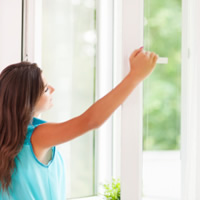
T |
0800 993 0795 |
M |
0788 330 0825 |
E |
sales@wefitforyou.com |
uPVC Window Installations Cambridge
 Do you want great quality windows at an affordable price? If so, then look no further!
Do you want great quality windows at an affordable price? If so, then look no further!
We only use good quality profiles such as VEKA, Rehau, Kommerling and Deceuninck – all made by trusted local companies!
It can be an extremely daunting task trying to chose the best type of windows for your property – we are here to ease the pressure and make the whole process as stress free as possible!
- uPVC, hardwood and aluminium windows
- Bay windows Cambridge
- Sash windows Cambridge
- Flat windows Cambridge
- Bow windows Cambridge
- Tilt and turn windows Cambridge
All of our frames come with the following as standard:
- Steel or aluminium reinforced frames
- Mechanically welded joints for extra strength
- Mushroom bolts
- Shoot bolts
- Hinge side security brackets
- Security friction stays
- Metal keeps
- Frame anchors
- 10 year guarantee
It is important to chose an energy-efficient double glazed unit when looking throughout Cambridge – this will help reduce your heating bills whilst being good to the environment.
As of October 2010 all new windows and doors must come with an Energy Rating of A, B or C. (A being the best, C being the worst – older windows can be as low as G!)
What is an Energy Efficient Window and how do they work?
The latest energy efficient glass is called 'low emissivity'. This glass contains an invisible metal coating on one of the two sheets of glass that make the window. This makes the glass reflective, keeping heat in and the home warmer in the winter and reflecting heat back in the summer, making the home cooler.
How do I find out how much I would reduce my carbon footprint by installing Energy Efficient Windows in Cambridge?
It is generally recognised that if you live in a single glazed house and install Energy Efficient Windows you could reduce the energy you use by 0.30 tonnes (or 18%) per year. This calculation is based on ‘an average, semi-detached house’.
Ged and Dawn took all the stress out of the whole process
Paul Davenport, Southport
Low-Emissivity (Low-e Windows) Coatings
Low-emissivity (low-e) coatings on glazing or glass control heat transfer through windows with insulated glazing. Windows manufactured with low-e coatings typically cost about 10% to 15% more than regular windows, but they reduce energy loss by as much as 30% to 50%.
A low-e coating is a microscopically thin, virtually invisible, metal or metallic oxide layer deposited directly on the surface of one or more of the panes of glass. The low-e coating lowers the U-factor of the window, and different types of low-e coatings have been designed to allow for high solar gain, moderate solar gain, or low solar gain. A low-e coating can also reduce a window's VT unless you use one that's spectrally selective.
Although low-e coatings are usually applied during manufacturing, some are available for do-it-yourselfers. These films are inexpensive compared to total window replacements, last 10 to 15 years without peeling, save energy, reduce fabric fading, and increase comfort.
Argon Filled Cambridge
Conventional Double Glazing involves the creation of a double skin of glass filled with dry air so designed as to increase the energy efficiency of any building in which it is used by reducing the heat losses through the windows. This form of double glazing is far more effective than a single paned window.
Warm Edge Spacer Cambridge
Warm edge (or thermal break) spacers reduce the heat lost around the perimeter of a double glazing window by replacing conventional aluminium with a low heat-conductive material. Some double glazing window can provide nearly 1,000 times more thermal insulation than aluminium spacer bars, improving the energy efficiency of Low E windows by 40 to 50%.
As with aluminium, thermal break spacer bars are filled with a silicone desiccant to absorb any moisture within the double glazing window and can contain dry air or gas-filled cavities. Thermal break spacer bars further reduce condensation on the room-facing surface of the double glazing window as they transmit less of a temperature difference to the interior pane. Warm edge spacer bars have the same geometrical form as a metal spacer bar, but are usually made from a fibre-glass reinforced insulation material. An ultra-thin foil lining acts as a barrier to the gas or air trapped within the cavity. Some warm edge spacers are available in an array of different colours and can be used for Georgian-style double glazing window.
Contact
For further information, please fill in the form below and a member of our team will contact you shortly.
* Mandatory fields